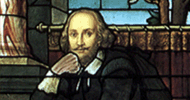

 |
 |
| Authorship | The Playhouse in Printing House | Publishers, Printers, and the Printed Book | ||||||||||||
| The Creation of Dramatic Authorship | |||
| Author Dedications | ||
|
At the same time that publishers were naming authors with greater frequency on play title pages, authors themselves were starting to write dedications for their plays. Printed plays were not only monuments to their authors' literary accomplishments, but were vehicles for patronage as well. Three plays by William Davenant, who at the time was seeking a place a court, were published in 1629 and 1630, each dedicated to a powerful political figure and prospective patron. Albovine (1629) was dedicated to the notorious Robert Carr, Earl of Somerset, the former favorite of King James VI and I who was convicted in 1616 of murdering Sir Thomas Overbury; The Cruel Brother (1630) to Richard Weston, Lord Treasurer, whom the French ambassador described in 1629 as "the most powerful Councillor" and the "only figure that had his master's [King Charles I] confidence"; and The Just Italian to Edward Sackville, 4th Earl of Dorset and Lord Chamberlain to the Queen (and the landlord of the recently built playhouse in Salisbury Court). Davenant was not seeking patronage simply from powerful courtiers, but leading ones in both the King's and Queen's courts. He ultimately secured as patrons Endymion Porter, who had close ties to Weston, and Henry Jermyn, who like Sackville was part of the Queen's circle. In his dedication to the Earl of Dorset, Davenant writes that The Just Italian was not favorably received at the Blackfriars theater, which would have "depriu'd this humble worke of life; but that your Lordships approbation, stept in, to succour it." But this is not only an epistle of thanks, for he ends with the plea that reveals his true intentions: he is "exalted with a hope to be receiu'd | Your Lordships humble Seruant." The dedication in The Jew of Malta is slightly different. It was not written by the play's author, Christopher Marlowe, but by Thomas Heywood, the author of the play's new prologues and epilogues. After relating a bit of the play's stage history-it was originally acted with "Mr Allin," the famous Elizabethan actor Edward Alleyn, and had recently been performed by the Queen's Men at Court and at the Phoenix in Drury Lane-Heywood dedicates it to Thomas Hammon of Gray's Inn, whom Heywood praises for his ability "to taxe Ignorance" and "attribute right to merit." He then reminds Hammon of his earlier patronage and implicitly appeals for continued favor: "Sir, you have bin pleased to grace some of mine owne workes with your courteous patronage; I hope this will not be the worse accepted, because commended by mee." This book is "a New-yeares gift," a sign of Heywood's appreciation, which he pledges to continue through his "inuiolable obliegement." |
Images: Columbia
Rare Book & Manuscript Library
Technology: Columbia Center for New
Media Teaching & Learning